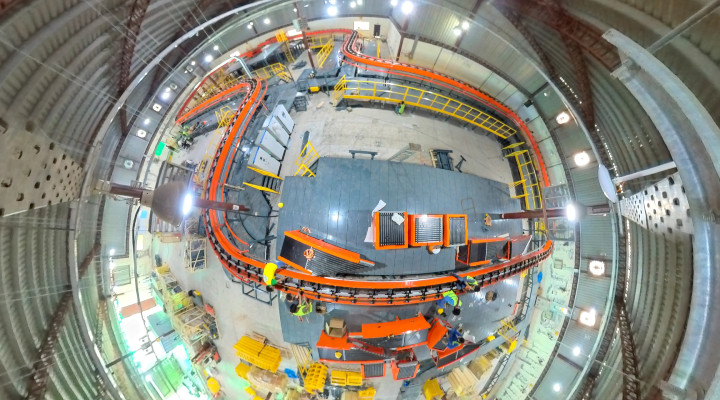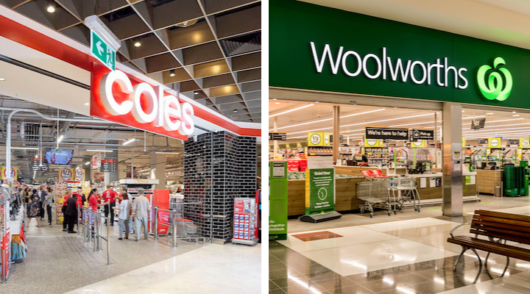Daraz, one of South Asia’s leading ecommerce platforms, recently announced upcoming plans to automate two of its smart distribution centres in Pakistan. The two facilities are located in Karachi and Lahore, and they will be among the most technologically advanced logistics facilities in South Asia. Cainiao Network, the logistics arm of Alibaba Group, will be the technology partner in this endeavour. The distribution centres will be equipped with innovative smart technologies, such as an automa
an automatic assembly line and smart distribution set-up. The overall objective of these solutions is to ensure operational quality and stability.
“Daraz focuses on innovating our services and adjusting our operations according to our markets’ demands; this includes optimising our distribution network in our markets,” Ahmed Tanveer, chief operating officer for Daraz Pakistan, told Inside Retail.
He added that beyond logistics, the company is continuing to focus on expanding its value proposition for customers and sellers with seamless user experiences on its mobile app.
The South Asian marketplace
With access to over 500 million people, and untapped growth potential, South Asia is one of the most exciting regions for the retail industry.
The region continues to demonstrate strong consumption momentum, and in the e-commerce sector, Daraz’s growth has been strong.
Over the past two years, the company’s business has grown by 85 per cent in gross merchandise value (GMV), with revenue surges during the 11.11 global shopping festival.
When it comes to the logistics ecosystem in Pakistan, this sort of technology is relatively new, and Daraz is hoping this move will bring immense knowledge sharing for the industry and help the country towards its digitisation efforts.
Solving pain points
“Automation will increase our sorting capacity by over four times and decrease manual errors by over 90 per cent. We look forward to bringing a global best-in-class technology and logistics solution to Pakistan,” Tanveer stated.
Tanveer went on to explain that the company has been partnering with its technology partners on several fronts.
From cross-border logistics to local seller pick-up services, the company has also focused on first-mile sortation, international line hauls, digital customs clearance and after sales services.
The technology partnership has allowed over 1,800 Daraz sellers to enjoy full end-to-end logistics services, with last-mile delivery covered by Daraz Express and its affiliated local logistics partners in Bangladesh and Pakistan.
“Despite the current economic situation, the long-term objective of automation remains the same. It further bolsters the need for automation as such processes reduce operational uncertainties and increase accuracy,” he added.
Diversification is key
According to Tanveer, Daraz has been enhancing its products and service offerings to grow the business.
“Besides investing in the customer value propositions on the Daraz app, we have expanded our services to include express deliveries, payments (e.g. Daraz Wallet, Buy Now Pay Later (BNPL) solutions), food delivery and technology solutions for merchants,” he noted.
He went on to explain that Daraz is already the 18th biggest e-commerce platform worldwide in terms of monthly active users.
“Our two main markets, Pakistan and Bangladesh, represent the fastest-growing consumer class in the world,” he stated.
He added that Pakistan is predicted to be the seventh largest consumer class by 2030, and Bangladesh will be the 11th largest consumer class by 2030, as indicated by the World Economic Forum.
A blessing in disguise
In Asia, the last two years of the pandemic have accelerated digital transformation in the region to such an extent that almost every product in the retail sector is now available online in most markets.
“The pandemic has provided Daraz with many opportunities in South Asia’s e-commerce space. In 2022, Daraz worked on improving our customers’ experience by looking into the different verticals in the company,” he said.
Tanveer said the company expanded its offerings with services like “Fulfilled by Daraz”, where the company offers its sellers warehousing and logistics services to deliver their inventory to their customers faster.
“This year, we have also expanded our sustainability efforts by increasing the use of bicycles and electronic bicycles as our last-mile delivery option,” he explained.
Unforeseen circumstances
Recently, as reported by Reuters, floods from record monsoon rains and glacial melt in the mountainous north of Pakistan have affected 33 million people and killed almost 1,400, washing away homes, roads, railways, livestock and crops, with the damage estimated to be US$30 billion.
Both the government and the UN Secretary General Antonio Gutteres have blamed climate change for the extreme weather that led to the flooding that submerged huge areas of the nation of 220 million people.
“The floods have affected Daraz’s operations, especially in Sindh and Balochistan regions. Our employees’ well-being is our priority, and our Health Safety Security Environment (HSSE) team has been working closely with the employees based in those regions to ensure they are safe,” Tanveer said.
He went on to say that since the onset of the Covid-19 pandemic, the company has learnt quickly to pivot and be agile in managing its operations on a daily basis.
“In the midst of facing these external challenges, we keep our customers updated on their package delivery status and our delivery heroes have also gone the extra mile to do their best in delivering packages,” he stated.
To support their local community, the company has partnered with non-profit organisations such as the Karachi Rain Disaster Fund, Balochistan Rain Relief Fund and Saylani Welfare International Trust Flood to raise Rs.15 million for affected families across Pakistan.







